‘Proposition Players’ Keep Local Card Games Steady
For a high roller, clocking in to work and being handed a few thousand dollars to gamble with for eight hours in a casino might sound like the best job.
However, employees working for Third-Party Providers of Proposition Player Services (TPPPS for short, as they are referred to formally by the California Gambling Control Commission) must know how to squash the gambling bug to stay professional.
A Third-Party Provider of Proposition Player Services is a state licensed business that provides gambling establishments with services that include playing as a participant in any controlled game that has a rotating player-dealer position.
A Third-Party Proposition Player, sometimes referred to as “props,” is an employee of a TPPPS whose job it is to fill open spots in card rooms to keep a game going.
Unlike in Las Vegas, in California, an individual is not allowed to play games solely against a dealer. They must play against other patrons.
Arise, LLC, is a TPPPS in Fresno that provides services for downtown’s Club One Casino and The Deuce Lounge and Casino in Visalia.
Founder and President of Arise, LLC, Darrell Miers, was instrumental in forming the TPPPS industry in the early 1990s.
Miers has been in the gambling industry for more than 30 years, and co-founded the funded third party proposition player industry in California with the formation of Core Partners and Core Capital Management in 1993.
For a period between the late ‘80s and early ‘90s, tribal casinos offered blackjack banked by players and not the house, with a player putting money up to bank the game and take the shoe — a gaming device used mainly in casinos to hold multiple decks of cards — and taking the wins or losses.
“It would require a lot of capital to take the shoe,” Miers said. “Eventually the tribes went to a housed bank. What happened was that people like myself would get together, pool their money so they could pick the shoe, and take fluctuations both up and down. When the tribes went to housed bank, people went over and took the same concept of pooling money and took it over to the card club side, and that’s kind of how the industry started.”
Miers paid his way through college by playing poker and as time went on, he got more involved in casino gambling.
After co founding Core Partners and Core Capital Management in 1993, he founded Gamecraft, Inc. in 1997, a video gaming software and hardware development company that made a poker playing slot machine that was in business until 2007, and in 2008, Arise, LLC was founded.
By state law, TPPPS wagers have to be separate from that of the casinos, not allowing co-mingling of funds, which makes Arise more of a vendor in the casino, rather than a partner, investor or shareholder. The casino or card room is not responsible for their wins and losses.
Arise currently has about 65 employees, and though one would think a “prop” is hired because of their past gambling experience, Darrell said that employees usually aren’t avid gamblers, as its better to have a player that can control himself and doesn’t get too excited by the game.
There is no secrecy when it comes to third-party prop players in poker games — they identify themselves and wear a badge, and because of the odds involved in card games, Darrell says the math doesn’t really give a way for prop players to gain an edge at the table.
“Every once in a while there’ll be someone with a casino background, but a third-party prop is more of a neutral party,” Miers said. “Their interest is just to make sure their cards are going to the right place, that the best are settling the right way, so they’re typically not casino employees.”
The prop players have a mentality to keep the game going, and not necessarily get big wins.
Miers said that since he got into the gambling industry 30 years ago, he’s seen that gambling has escaped that stigma of being seeing as a harmful vice and become more of an acceptable and legitimate form of entertainment.
Miers is looking to do business with other card clubrooms in other cities, and plans to keep his poker face in the Central Valley.
